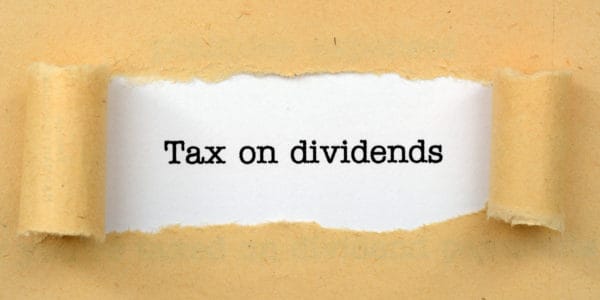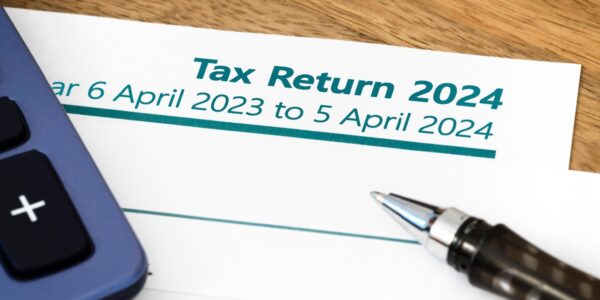Dividends are payments made to shareholders from a company’s post-tax profit. This is the surplus income that is left after the company has paid all of its taxes, business expenses, and liabilities. The dividend tax rates that shareholders pay on their dividends depend on which Income Tax band(s) their earnings fall under.
Dividend tax rates for 2024/25
The dividend tax rates in the UK have remained unchanged for a number of years. You won’t pay any personal tax on the first £500 of dividend income (this is the dividend allowance for 2024/25), but anything above this amount will be subject to the following tax rates:
| Income Tax band | Dividend tax rate |
| Personal Allowance (up to £12,570) | 0% |
| Basic rate (£12,571 – £50,270) | 8.75% |
| Higher rate (£50,271 – £125,140) | 33.75% |
| Additional rate (from £125,141) | 39.35% |
To determine how much tax you will pay on dividends, you need to add all of your income together (dividend income + director’s salary + any other taxable income) and work out which Income Tax band you’re in (thus, which dividend tax rates apply).
It may be the case that you pay no Income Tax or dividend tax at all if your total personal income is within your tax-free Personal Allowance and dividend allowance (a combined total of £13,070). On the other hand, you may have to pay tax on dividends at more than one rate if your total income takes you above the basic Income Tax band.
Tax-efficient dividend payments
If you are a shareholder and director in a UK limited company, the tax that you will pay on dividends is a key consideration when determining how to pay yourself through your company. You need to work out whether it’s better to take a director’s salary, dividends, or a combination of both.
Bearing in mind that dividend tax rates are much lower than Income Tax rates, you will likely benefit from taking a small director’s salary (below your tax-free Personal Allowance of £12,570) and topping up your income with regular dividend payments. This will enable you to minimise your National Insurance contributions and pay less tax on your income.
The way you choose to pay yourself through your company is an important decision that will form part of a wider tax-planning strategy. As such, it would be beneficial to appoint an accountant who can offer professional advice, deal with your business and personal finances, and help you work out the most tax-efficient way to run your company and pay yourself.
How to pay tax on dividends
How you pay tax on dividends depends on how much dividend income you receive in the tax year. If your annual dividend income is £10,000 or below, you can tell HMRC in one of three ways:
- contact the Income Tax helpline
- ask HMRC to change your tax code and deduct the dividend tax directly from your wages or pension
- include your dividend income on a Self Assessment tax return
Please note: There is no need to tell HMRC if your dividend income is within your £500 dividend allowance.
Annual dividend income above £10,000 must be reported to HMRC on a Self Assessment tax return. If you are already registered for Self Assessment, simply include your dividend income in the relevant section of your tax return.
If you do not normally send a tax return, you will have to register for Self Assessment by 5th October after the end of the tax year in which you received the dividend income. Your dividend tax will be due the following January.
Please note that the information provided in this article is for general informational purposes only and does not constitute legal, tax, or professional advice. While our aim is that the content is accurate and up to date, it should not be relied upon as a substitute for tailored advice from qualified professionals. We strongly recommend that you seek independent legal and tax advice specific to your circumstances before acting on any information contained in this article. We accept no responsibility or liability for any loss or damage that may result from your reliance on the information provided in this article. Use of the information contained in this article is entirely at your own risk.






Join The Discussion